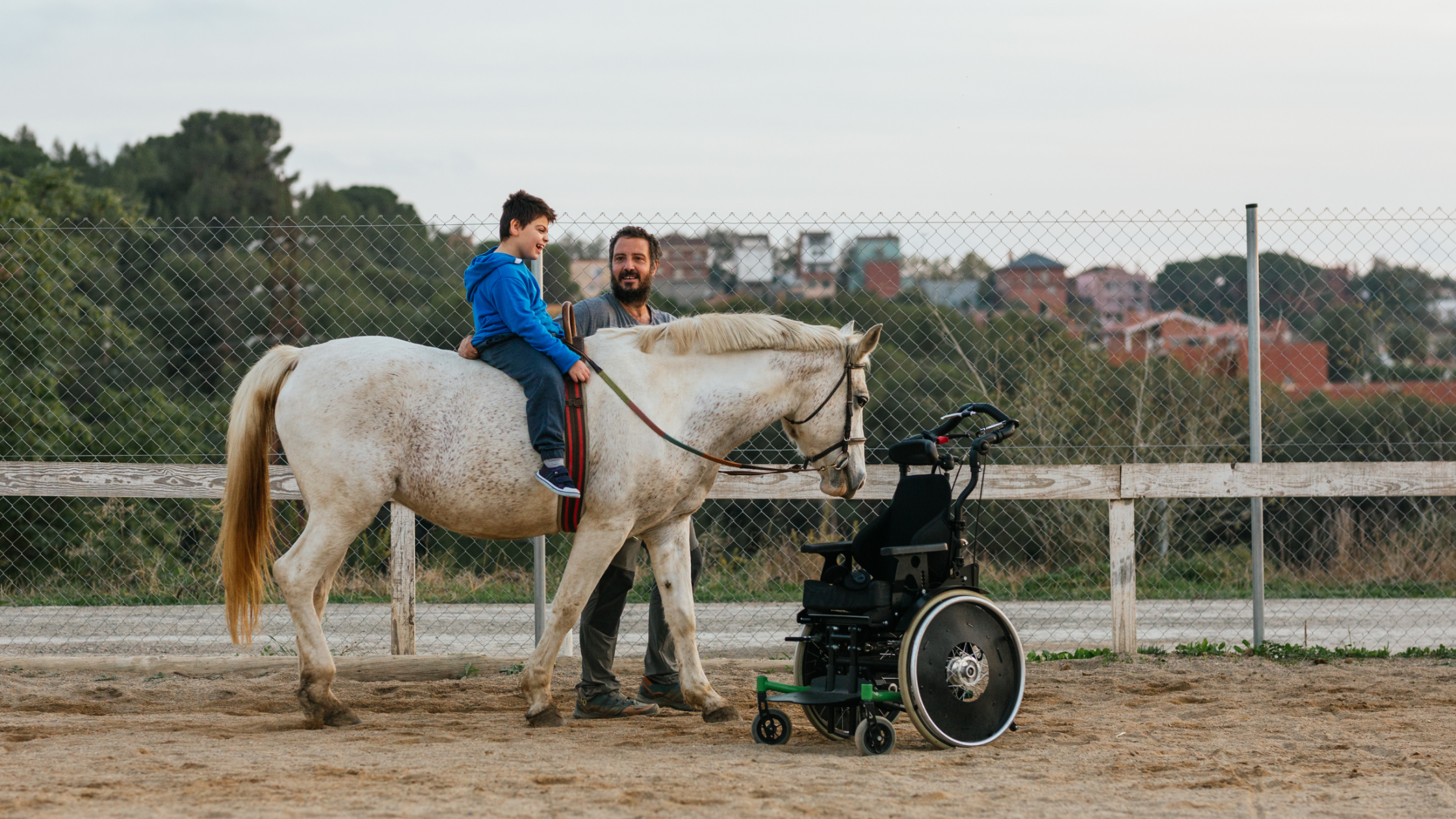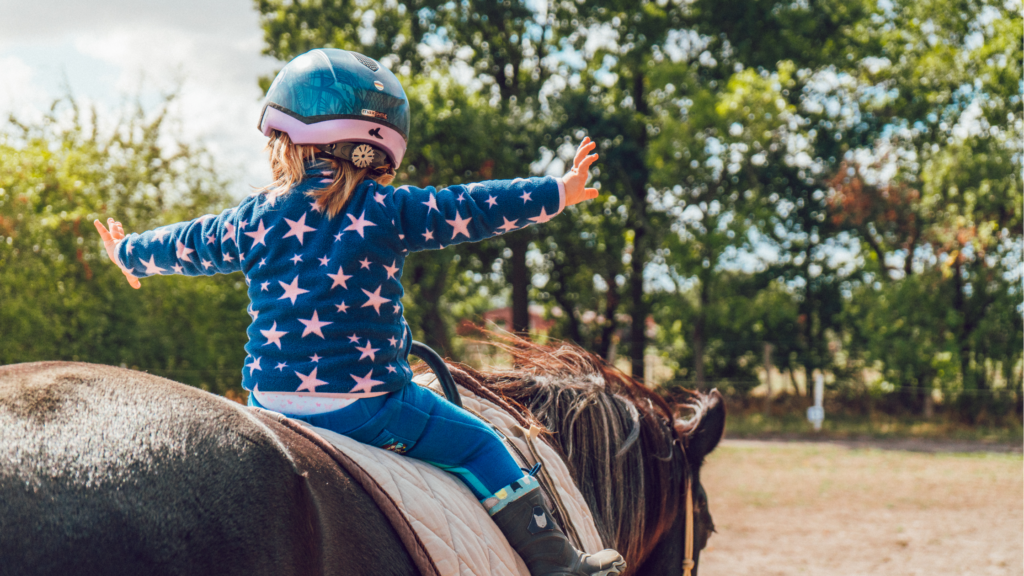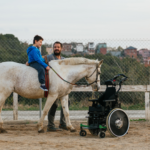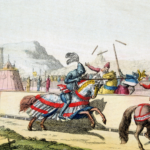
Horseback riding is a sport that not only improves physical fitness, but also offers numerous psychological benefits for those who practice it. Horseback riding helps develop a unique connection between rider and animal, which creates an emotionally and mentally enriching experience. In this article, we will explore how horseback riding can influence the mental and emotional well-being of people of all ages, from children to adults, and how it can become a powerful tool for improving quality of life.
Stress reduction.
We live in a fast-paced world where stress and anxiety are part of everyday life. Riding offers an opportunity to disconnect from the daily hustle and bustle and enter a space of calm and concentration. The natural environment, the steady pace of the horse and the need to be present in the moment help riders relax, reducing cortisol levels (the stress hormone). In addition, studies have shown that interacting with animals has a calming effect, making horseback riding an ideal therapeutic activity to combat stress.
Increased confidence.
Learning to ride and control a horse takes time and patience. As the rider advances in his ability to lead and communicate with the horse, his self-confidence is strengthened. This increased confidence not only manifests itself in the riding arena, but transfers to other areas of life, such as work or personal relationships. Riding a horse, especially in challenging situations such as competitions or difficult rides, allows people to face their fears and overcome challenges, which strengthens their self-esteem.
Development of emotional skills.
The relationship between rider and horse is based on mutual trust, patience and respect. This bond teaches riders to manage their emotions, as horses are very sensitive to the emotional state of people. If the rider is nervous or anxious, the horse senses this and may respond unpredictably. Learning to control emotions to convey calmness and security to the horse is a valuable lesson that also has applications in everyday life. This capacity for self-control and empathy strengthens the emotional intelligence of riders.
Improved attention and concentration.
Riding requires a great capacity for concentration. During a session, the rider must pay attention to the horse's movements, to the commands it gives and to his or her own balance and posture. This mindfulness practice not only improves riding performance, but also helps people develop a greater ability to concentrate in other areas, such as work or studies. By being completely focused on the activity, riders learn to block out external distractions and live in the present moment.
Equine-assisted therapy.
In addition to the benefits mentioned above, horseback riding is increasingly being used in animal-assisted therapies, known as equine therapy. These therapies have proven to be effective for people with autism spectrum disorders, learning disabilities, anxiety and depression. Contact with horses allows patients to develop communication skills and emotional connection, improving their psychological well-being significantly.
Riding is not just a sport, it is an experience that transforms both body and mind. The psychological benefits of horseback riding, from reducing stress to developing emotional skills and improving confidence, make this activity much more than just a hobby. In addition, the growing popularity of equine therapy demonstrates that the bond between humans and horses can be profoundly therapeutic. At Deluxe Horse, we encourage this connection and offer the opportunity to experience all that riding can bring to mental and emotional well-being.





